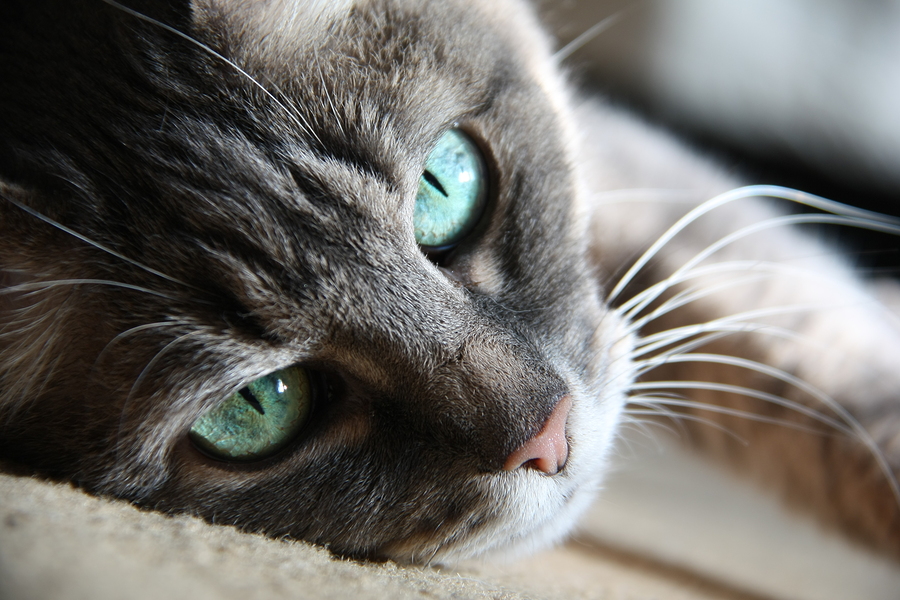Uveitis is a fairly common problem in cats, and can have a number of causes. Because of the seriousness of leaving it untreated, all cat owners need to be aware of its symptoms and what to do if they suspect them. A reader’s cat was just diagnosed with this condition, and here’s what I told her about her cat’s diagnosis.
Q: My cat has been diagnosed with anterior uveitis. What can you tell me about this eye problem?
A: You probably first noticed that your cat’s eye was painful because he was squinting or tearing up, his eyeball was inflamed and his third eyelid — that thin membrane at the inner corner of the eye — was swollen. Sometimes the eye appears unusually enlarged. We usually see it in middle-aged or older male cats, but any cat can be affected.
Those signs can indicate inflammation of the uvea, the pigmented middle layer of the eyeball made up of the iris, the ciliary body and the choroid. Cats with uveitis may be extremely sensitive to light or show other signs of pain, such as pawing at the eye.
Possible causes include underlying infectious diseases such as feline immunodeficiency virus, feline leukemia virus and feline infectious peritonitis; trauma; cataract formation; and cancer. Sometimes the cause is unknown.
Signs of uveitis can mimic those of other eye diseases or injuries, and puncture wounds of the eye can go unnoticed when they occur, so uveitis can be a challenge to diagnose. A thorough history; physical exam to detect underlying viral, bacterial or fungal diseases; and eye exam are all important. Tell the veterinarian about any cat fights, pointy plants or other ways a cat’s eye may have been unknowingly injured. Imaging such as radiography or ultrasonography may be necessary as well.
Uveitis can result in gradual blindness or irreversible complications such as glaucoma and cataracts if it’s not caught early or goes untreated. Depending on the cause, your veterinarian may prescribe topical and systemic corticosteroids, NSAIDS and other drugs to control inflammation and pain and treat underlying causes if known. If the underlying cause is treatable, cats with anterior uveitis can have a good outcome.
Read more in Pet Connection, the weekly nationally syndicated pet feature I co-write with Kim Campbell Thornton and my daughter, trainer Mikkel Becker.


